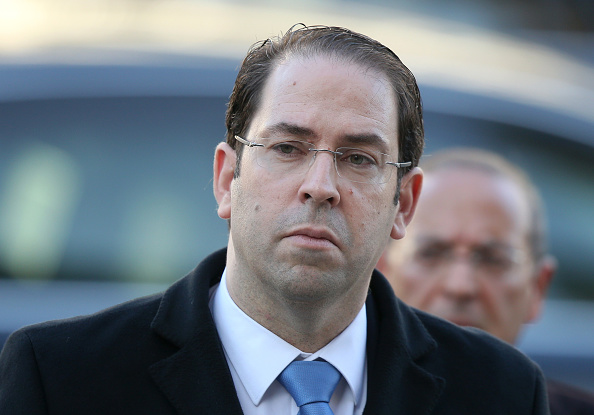
Tunisia’s PM reshuffles cabinet to tackle economic crisis
Tunisian Prime Minister Youssef Chahed named 10 new ministers on Monday in a cabinet reshuffle he hopes will inject fresh blood into his government which has been widely criticised for failing to fix an economic crisis.

Key portfolios such as finance, foreign and the interior ministries were kept unchanged.
Since the toppling of autocrat Zine El-Abidine Ben Ali in 2011, Tunisia’s economy has been in crisis and nine cabinets have failed to resolve economic problems, including high inflation and unemployment.
Chahed named Jewish businessman Rene Trabelsi as minister of tourism in the Muslim Arab country, only the third member of the small minority of 2,000 Jews to enter a cabinet since Tunisia’s independence in 1956.
A former foreign minister under Ben Ali, Kamel Morjan, became minister in charge of the public service, the country’s main employer.
“This reshuffle is to make the work of government more effective and to put an end to the political and economic crisis,” Chahed said in a statement.
Impatience has been rising among lenders such as the International Monetary Fund, which have kept the country afloat with billions of dollars in loans.
The reshuffle came amid a political crisis as the president’s son, Hafedh Caid Essebsi, who is leader of the ruling party Nidaa Tounes, called for the dismissal of Chahed because of his government’s failure to revive the economy.
In a sign of the distrust inside the ruling party, President Beji Caid Essebsi rejected the reshuffle as he had been informed too late about it without prior consultation, his spokeswoman Saida Garrach said.
Essebsi cannot stop the reshuffle. It needs to be approved by parliament where Chahed has assembled a majority of lawmakers backing him.
Nidaa Tounes rules with moderate Islamists who have backed Chahed.
Its demand has been supported by the powerful UGTT union which has also opposed Chahed’s plans to overhaul loss-making public companies.
Tunisia has been hailed for its democratic transition since 2011 but the North African country has been hit by economic crisis and militant attacks since then.






